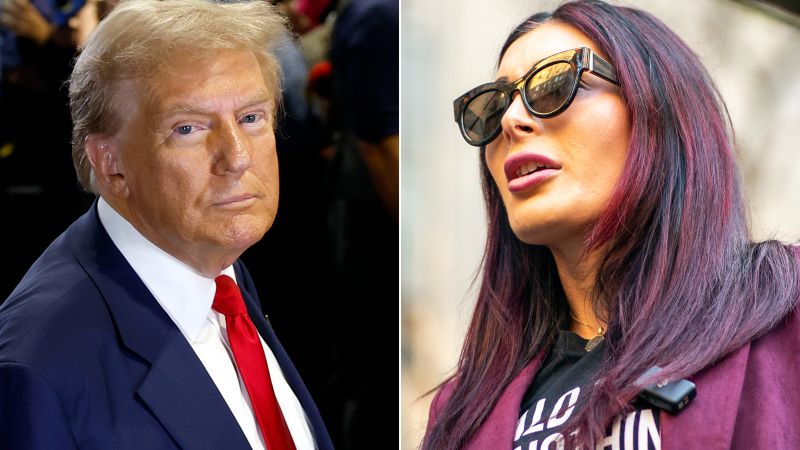Former President Donald Trump faced questions from reporters about controversial far-right activist Laura Loomer during a press conference in Rancho Palos Verdes, California. Laura Loomer is known for making conspiratorial comments and promoting extremist views. In response to a question about GOP concerns over Loomer, Trump defended her, stating that he did not know much about her but that she “does a lot of good things.” This led to criticism from internet users and political commentators, who pointed out Loomer’s history of making racist and inflammatory statements.
The questioning of Trump about Laura Loomer highlights the ongoing debate within the Republican Party about how to address far-right figures with controversial views. Some GOP members are concerned about associating with individuals who have a history of promoting conspiracy theories and inciting division, while others, like Trump, seem willing to overlook or downplay these issues. Loomer’s past comments have been widely criticized as racist, Islamophobic, and discriminatory, leading to bans from social media platforms and other consequences. Trump’s response to the question indicates his reluctance to distance himself from Loomer, despite her controversial reputation.
The controversy surrounding Laura Loomer and Trump’s response to questions about her bring attention to the broader issue of extremism and radicalization within the political landscape. Far-right figures like Loomer have gained a following by spreading disinformation, promoting divisive rhetoric, and targeting marginalized communities. The reluctance of some political leaders to condemn or distance themselves from these individuals can contribute to the normalization of extremist views and behaviors, further polarizing society and undermining democratic principles. Trump’s defense of Loomer reflects a larger trend of mainstream politicians aligning with fringe elements of the political spectrum.
The press conference incident involving Laura Loomer also underscores the challenges facing journalists in covering political figures who have ties to extremist groups or individuals. Reporters must navigate a complex media landscape where disinformation and propaganda can shape public perceptions and influence political discourse. Holding public figures accountable for their associations and statements, particularly when they have the potential to incite violence or promote hateful ideologies, is a crucial aspect of journalistic integrity. By questioning Trump about Loomer, reporters are fulfilling their role as watchdogs and seeking to shed light on the connections between political leaders and extremist movements.
The reaction to Trump’s comments about Laura Loomer from internet users and commentators reflects the deep divisions within American society over issues of race, religion, and political ideology. While some individuals defend Loomer and Trump’s stance on her, others condemn their actions as irresponsible and harmful. The rise of far-right extremism and the spread of conspiracy theories pose a serious threat to social cohesion and democratic values, requiring a concerted effort from political leaders, media organizations, and civil society to address and counteract these trends. By engaging in public debates and holding leaders accountable for their words and actions, citizens can contribute to a more informed and inclusive political discourse.
In conclusion, the controversy surrounding Laura Loomer and Donald Trump’s response to questions about her illustrate the complex challenges facing American society in confronting extremism and radicalization. The willingness of political figures to align themselves with fringe elements of the political spectrum, despite their history of promoting divisive and harmful ideologies, raises concerns about the future of democracy and social cohesion. Journalists play a crucial role in uncovering and exposing these connections, while citizens must remain vigilant in holding leaders accountable for their actions. By addressing the root causes of extremism and promoting tolerance and understanding, society can work towards a more inclusive and peaceful future.


